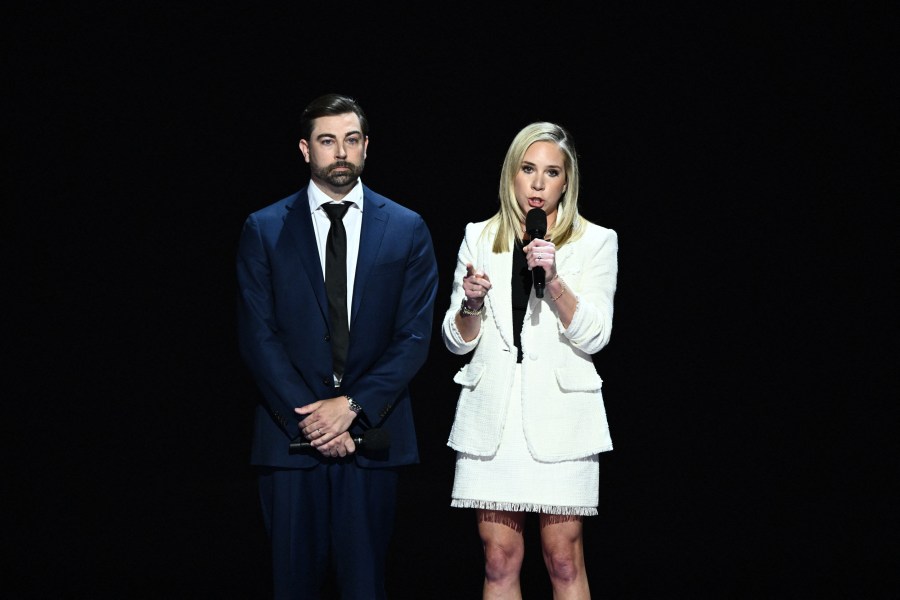This post is the third in “MAGA and Masculinity in 2024,” an ongoing series examining the societal fallout from right-wing hypermasculinity — and the people fighting its toxic messaging by positively redefining what it means to be a man. You can read the first post here and the second post here.
Oren Jacobson, co-founder of reproductive rights advocacy group Men 4 Choice, said he had an “aha-slash-oh-s— moment” in 2015 that led him, a progressive organizer at the time, to shift his focus toward reproductive rights and bodily autonomy.
That was the year he became convinced of the real potential for Roe v. Wade to be overturned and for abortion to be criminalized, Jacobson told me on Tuesday. He cited Pew Research Center data that shows majorities of both men and women support abortion being legal in all or most cases. However, he argued, voices critical of abortion seem to dominate coverage of the issues.
“I was struck by the fact that the men who were speaking were the ones who were trying to criminalize abortion, while the six in 10 of us who thought that was bulls— were saying nothing and doing nothing,” Jacobson said. “And that struck me as this really interesting puzzle.”
Men 4 Choice garnered national attention last year and earlier this year when second gentleman Dough Emhoff invited the group to participate in roundtables on ways to get male allies to help advocate for abortion rights. And the group’s ads have drawn support from other prominent activists.
In my interview with Jacobson on Tuesday, we discussed hypermasculinity, men’s role in the reproductive rights movement, and the powerful moments at the Democratic National Convention this year, when Josh Zurawski and Derek Cook took the stage as symbols of the righteous impact men can have on the fight reproductive rights.
This interview has been slightly edited for length and clarity.
Ja’han Jones: What are the lessons your work has taught you about men’s views on abortion rights?
Oren Jacobson: Number one is that most men don’t understand the harm abortion bans cause. It’s a little easier now, after Dobbs, because you have Josh Zurawski speaking out or Derek and Anya Cook’s story or the couple stories out of Georgia we’ve seen where women have actually died. So that harm is a little bit more front and center. But especially pre-Dobbs, and in ways that people don’t even see still, it wasn’t as obvious to many men how people are harmed by the denial of access to care, whether it’s like care in an emergency situation or just like, “Hey, when you start banning and criminalizing abortion, OB-GYNs leave your state and less people have access to all reproductive health care.” So the number one lesson is the need for men to understand harm. How does this actually hurt my family, my community, and my people?
[Read more about the Zurawskis here and the Cooks here.]
JJ: What are the other lessons?
OJ: Number two is that most men don’t see this as their issue. It’s a woman’s issue in their mind. They think, “It doesn’t directly impact me. I’m not affected.”
The third is that most men don’t see a natural entry point into this organizing work. Most of the organizations and organizing and messaging and communications and outreach is focused on women and pregnant people, which makes endless amounts of sense. But pick any population in the country and say, “If you’re not engaging them, what are the odds that they actually engage with you civically, right?”
And then the fourth is that men don’t have a playbook. They just don’t know what to do and don’t know what to say. And so even if you get them through the first three pieces, you give them an entry point. You help them see the harm. You help them create ownership. You still need to tell them what to do and how to do it, because they know they’re not experts, and they’re worried that they’re going to screw up.

JJ: What kind of messaging have you seen work in terms of getting men to better understand that abortion is their issue, too?












